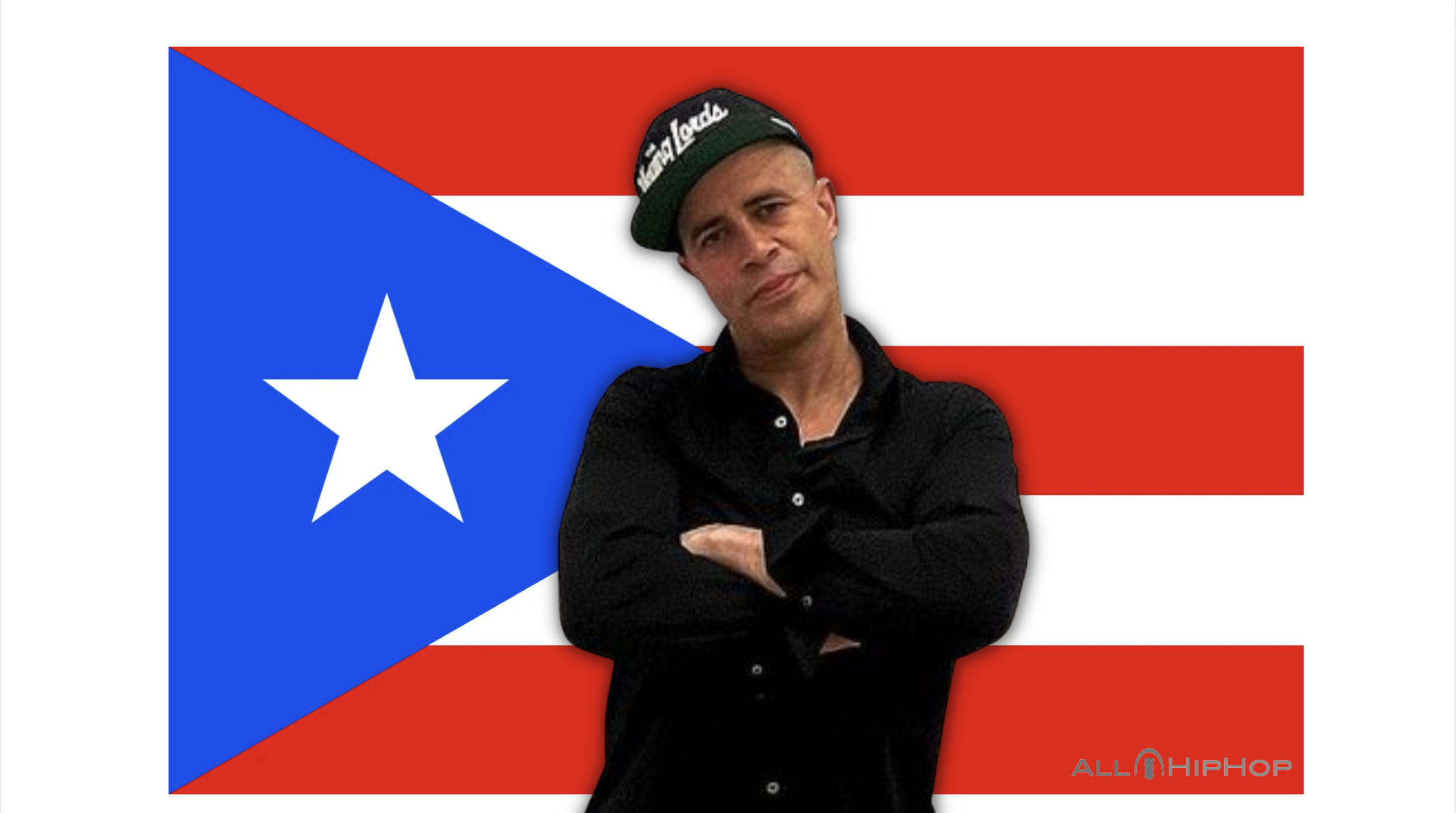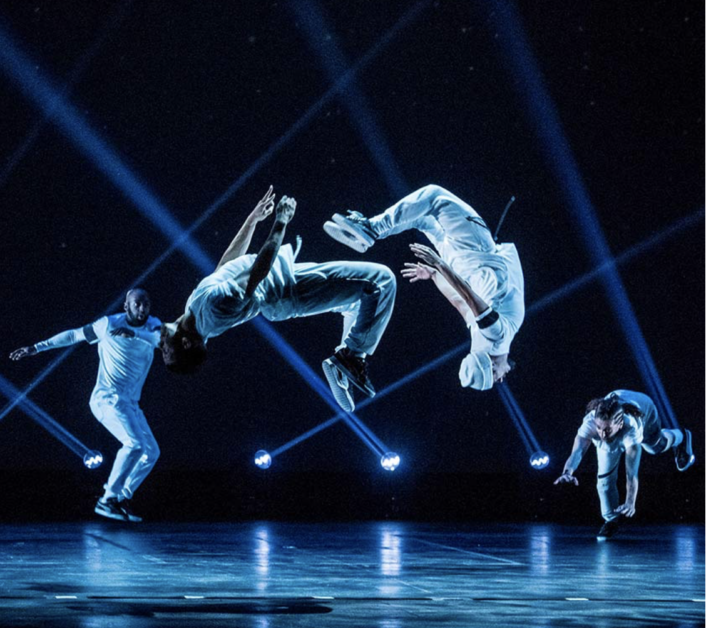Chuck “Jigsaw” Creekmur Examines Hip-Hop Breaking into the Olympics, A Dance with Opportunity and…Controversy
The 1970s were a transformative era for Hip-Hop culture. Before the elements began to go their separate ways, breaking—also called breakdancing—emerged from the the Bronx as a vibrant form of expression. Characterized by acrobatic and rhythmic moves, breaking quickly became a cornerstone of American culture. Breakers were suddenly thrust into the forefront, included in movies and given the opportunity to tour the world. Richard Colón, internationally known as Crazy Legs, and Kurtis Blow are two of the ambassadors who helped take Hip-Hop to the next level.
Now, as breaking ascends to the global stage of the Olympics, Blow feels a profound sense of honor and gratitude.
“To see it transform and transcend to what it is now, man, in the Olympics—I am just so honored and grateful that I’m alive to see this,” he shared in a recent interview.
The inclusion of breaking in the Olympics signifies not only recognition of its artistic and athletic value but also a celebration of its deep roots in Hip-Hop culture.
Crazy Legs shared his perspective on the inclusion of breaking in the Olympics, a decision that has stirred both excitement and controversy within his coveted dance community. With breaking making its Olympic debut in Paris 2024, the potential for global recognition and career advancement for dancers is immense.
“It’s a great opportunity for people who want to be on the world stage and have the opportunity to hopefully leverage that situation into something that moves their dance careers forward,” Crazy Legs remarked.
He emphasized the potential for this platform to elevate the dance and increase awareness about its rich history and the contributions of its legends and pioneers. Yet, he remains cautious about the broader implications, stating, “I can only hope that they maintain the integrity of the judging system, the judges, any kind of ambassadorship program.”

Breaking originated in the Bronx during the early 1970s, born out of the burgeoning Hip-Hop culture that was beginning to sprout in New York City. Soon, it would spread to Los Angeles and the rest of the world. Breaking evolved as a form of street dance, characterized by its energetic style and intricate moves, including spins, freezes and power moves. The dance form quickly became a cornerstone of Hip-Hop, influencing music, fashion and youth culture globally.
However, the omission of breaking from the 2028 Los Angeles Olympics has sparked discontent, especially among American pioneers of the dance. Despite its deep American roots, breaking was excluded from the list of sports, a decision that Crazy Legs views as a significant oversight.
“The fact that the US Olympic Committee didn’t choose breaking for the 2028 Olympics is kind of a slap in the face when you take into account that France added breaking to its roster of events,” he stated. “When your own country turns its back on you, it is kind of a tough one when you look at them selecting disciplines from other countries.”
Furthermore, none of the pioneers or early breakers like Crazy Legs’s Rock Steady Crew, New York City Breakers or other crews are involved at all.
The decision underscores a broader issue within the dance community, where support for cultural events and promoters who genuinely understand and invest in the essence of the dance is crucial.
“We have to continue to support the events that people naturally go to or have been going to throughout the decades and continue to support those promoters who are really about the culture and really are in support of the dance and the individuals who do the dance,” Crazy Legs asserted.
The integration of breaking into the Olympics, while momentous, is not without its challenges. Crazy Legs draws a parallel to basketball, noting, “Basketball is in the Olympics, but the Olympics will never be the NBA.”
He suggests that while the Olympics provide a global stage, they cannot fully capture the essence of breaking events rooted in Hip-Hop culture. “The Olympics could never be of the essence when it comes to the way hip hop throws breaking events,” he concluded.
Blow’s largely unknown history as a dancer provides a particular and unique lens.
“We used to break dance on cardboards and, my God, we used to break dance on the rooftops,” Blow said. “That was our safe haven back in the ’70s.”
Breaking will be used in both Crazy Legs and Blow’s ventures, regardless of what the Olympics do in Los Angeles. Crazy Legs has his PRS Fest on August 31 in Patterson New Jersey and the event will celebrate all of the elements.
Redman, Method Man, Big Daddy Kane & All Of Hip-Hop’s Elements To Be Repped At PRS Festival
The PRS Fest expects to be a vibrant celebration of the four elements of Hip-Hop: MCs, DJing, breakdancing and graffiti. The festival promises unexpected delights with its curated immersive experiences, including a special video presentation by KRS-One and celebrations honoring the breakers from the Paris 2024 Olympic Games. Method Man and Redman, Big Daddy Kane, The Jungle Brothers, Furious 5, Lords of the Underground, Mr. Cheeks of the Lost Boyz, Monie Love and others will perform.
Meanwhile, Blow’s The Hip Hop Nutcracker rounds out its 12th season, underscoring the power of Hip-Hop. The dance, once performed on cardboard is now a celebrated stage show. “Who would ever think we’d have breakdancing in the Hip-Hop Nutcracker,” Blow marveled.

The modern classic ballet blends Hip-Hop with Tchaikovsky’s timeless score and puts a notch in Hip-Hop’s cultural belt.
As breaking prepares to take its place on the Olympic stage, the dance community remains hopeful yet vigilant, striving to preserve the authenticity and spirit of this iconic art form. The journey of breaking from the streets of the Bronx to the global spotlight of the Olympics is a testament to its enduring influence and cultural significance.